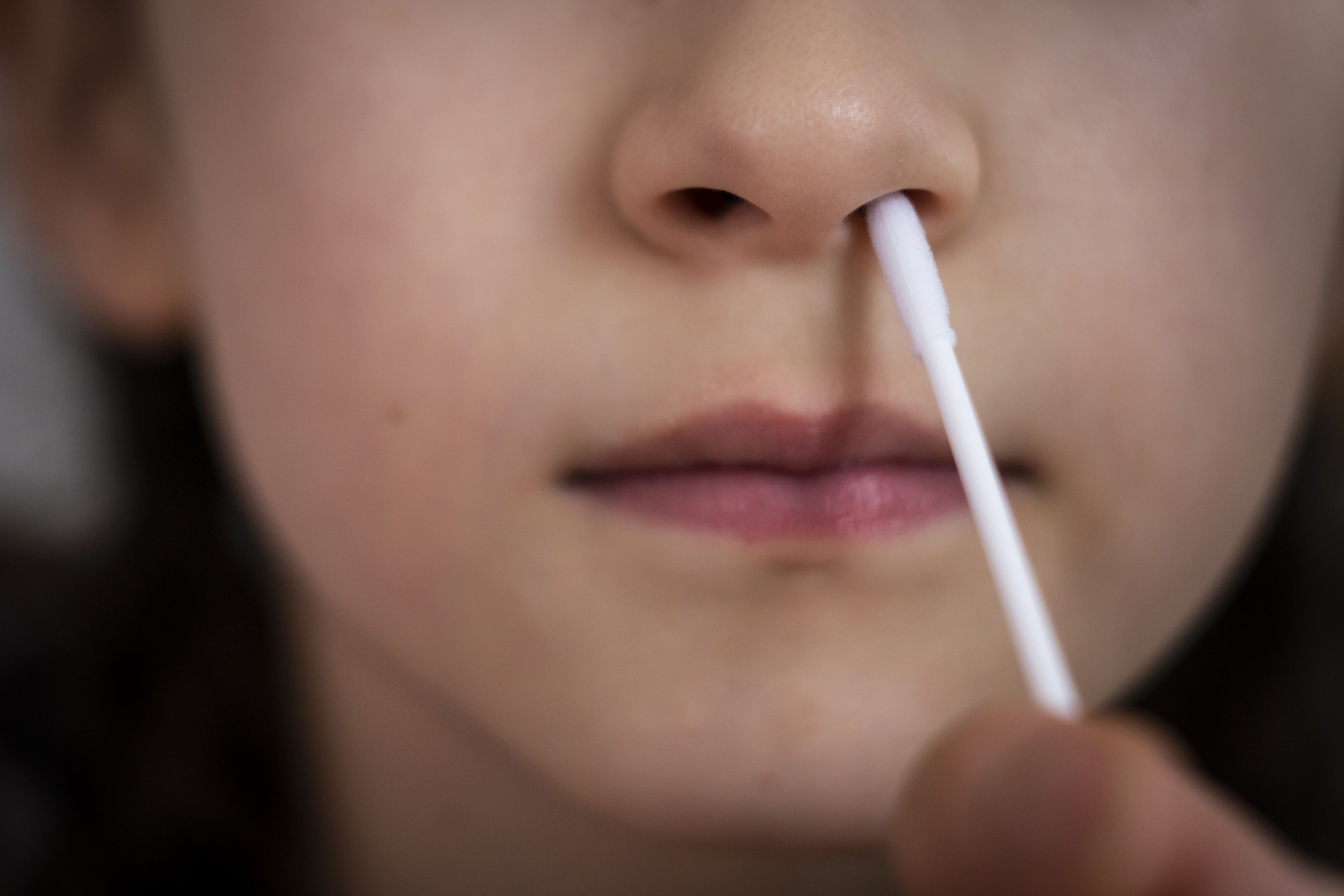UK’s ‘gold standard’ Covid-19 infection survey to stop collecting data
The survey has run continuously for nearly three years.

The UK’s long-running weekly Covid-19 infection survey, recognised worldwide as the “gold standard” for measuring levels of coronavirus among the population, is to stop collecting data.
The survey, which is based on a sample of tests from households across the country, will be “paused” from March 31, health officials have said.
Any new surveys will be announced “in due course”.
The infection survey has been led by the Office for National Statistics (ONS) and has run for nearly three years, during which time it has been the most reliable measure of the prevalence of Covid-19 in the UK.
It has provided vital data on levels of infection in all four nations of the country, along with regions and age groups in England, and has allowed successive waves of the virus to be clearly identified and tracked.
It has also supplied crucial information on the emergence of new variants, antibody levels, long Covid and the characteristics of those with the virus.
The survey collected swab tests and blood tests from households regardless of whether participants knew they had Covid-19 or if they were reporting results to the NHS, meaning it provided a valuable snapshot of the true spread of the virus, which was often underestimated by Government figures.
For example, during the wave of the virus in spring 2022 caused by the Omicron variant BA.2, data from the survey suggested there were half a million new infections a day in the UK – eight times the number being recorded on the Government’s dashboard.
The survey was rolled out across the UK during the summer and autumn of 2020, just after the first wave of the virus.
But it has measured every wave since then, with its figures revealing the biggest wave came in spring 2022 when weekly infections hit 4.9 million, followed by the wave of winter 2021/22, which peaked at 4.3 million infections.
In recent months the survey has helped track the scale and progress of the Christmas 2022 wave, which peaked at nearly three million infections, and a rise in prevalence of the virus during February 2023.
The UK Health Security Agency (UKHSA) said it will “confirm details of any new surveillance surveys that continue beyond March 31 2023 in due course. In the meantime, data collection for the Covid-19 infection survey will be paused”.
We remain committed to monitoring the threat posed by Covid-19 through our range of surveillance systems and genomics capabilities, which report on infection rates, hospitalisations and the risks posed by new variants
Professor Steven Riley, UKHSA director-general of data, acknowledged the survey has been an “important tool” in helping understand coronavirus, adding: “We will continue to ensure our surveillance activities remain proportionate and cost-effective with the move to living with Covid-19.
“We remain committed to monitoring the threat posed by Covid-19 through our range of surveillance systems and genomics capabilities, which report on infection rates, hospitalisations and the risks posed by new variants.”
Sir Ian Diamond, national statistician and ONS chief executive, said: “The pandemic has been a formidable test of our ability to gather and analyse data quickly, and the unique value of the Covid-19 infection survey (CIS) has been recognised worldwide.
“The data from this survey has had an incredible impact on the country’s response to the pandemic, and its success instils confidence in the ability to stand up wider surveillance activities in future.
“As UKHSA works to confirm its approach to Covid-19 surveillance, we plan to continue gathering valuable insight into the experiences of Covid-19 and other respiratory infections and long Covid in communities, and look forward to continuing to work with CIS participants to do so.”
The infection survey has been delivered by the ONS in partnership with the University of Oxford, University of Manchester, the UKHSA and the Wellcome Trust.
Bookmark popover
Removed from bookmarks